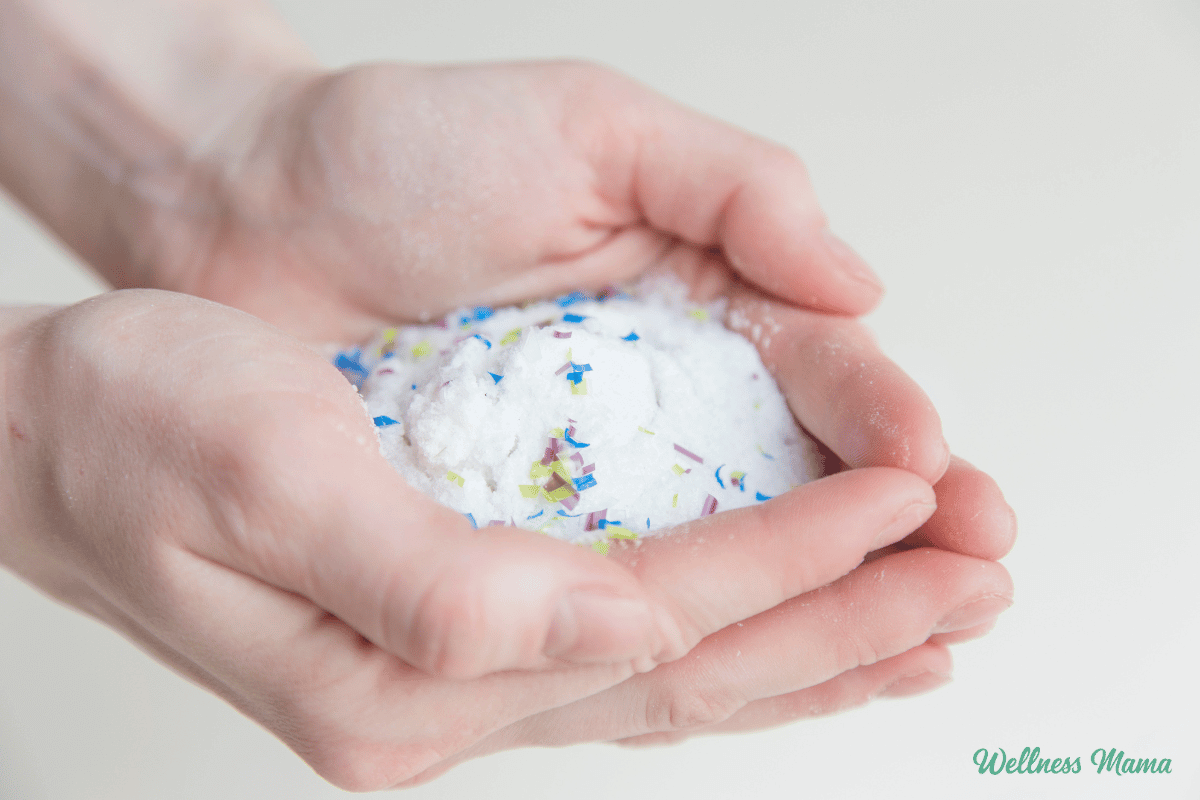If you’re like me, you may have grown up believing that poor brushing habits, a sugar-rich diet, and genetics are the sole culprits behind dental issues. For many, cavities and tooth decay were indicators of the need for better brushing routines and less sugar consumption. The idea of healing or remineralizing teeth seemed impossible; dental fillings and fluoride treatments were thought to be the only solutions.
I, too, subscribed to these beliefs. But despite numerous oral care options, tooth demineralization is alarmingly common. The National Institute of Dental and Craniofacial Research reports that nearly 90% of US adults and 23% of children suffer from dental cavities.
After personally experiencing tooth decay, I initially thought dental procedures were the only way to reverse the damage. However, through extensive research and experimentation, I discovered the significant role diet plays in oral health, revealing that healing one’s teeth is indeed possible.
Understanding Tooth Remineralization
Tooth demineralization occurs when minerals are stripped from teeth, leading to cavities and decay. Remineralization is the tooth’s natural healing process where the body restores these minerals to promote recovery. Calcium and phosphate re-enter the tooth, forming new hydroxyapatite crystals that fortify and heal teeth.
While remineralization can take place, it requires an optimal oral environment, which encompasses a suitable diet and proper oral hygiene.
The Real Causes of Tooth Decay
Our bodies are designed to heal themselves; broken bones and damaged tissues regenerate when given the proper care. It’s logical that our teeth have the potential to regenerate as well.
Dr. Weston A. Price, a dentist, explored the relationship between diet and dental health among cultures with similar genetic backgrounds worldwide, some living in primitive societies with traditional diets and others with modern diets.
In his book "Nutrition and Physical Degeneration," Dr. Price shared findings that many societies exhibited perfect tooth spacing and didn’t suffer from cavities, despite lacking access to dentists or modern toothpaste. In contrast, those on modern diets showed significant decay.
Dr. Edward Mellanby, who discovered vitamin D, and his wife, Dr. May Mellanby, also explored the influence of nutrients on oral health. They found that tooth development deficiencies lead to increased decay during a child’s growth phase.
Impact of Phytic Acid on Bone and Tooth Health
Phytic acid, a phosphorus molecule bound with others, forms a compound present in grains, nuts, seeds, and legumes that is hard for humans to absorb. Research suggests that phytates, a derivative, can leach calcium from the body.
Diets high in phytic acid have been associated with increased rates of tooth decay, mineral deficiencies, and osteoporosis. The typical American diet, rich in grains, sugars, and vegetable oils yet low in animal fats and fat-soluble vitamins, contrasts starkly with the findings by Drs. Mellanby.
Vitamin D and Phytic Acid
Removing phytic acid from one’s diet and incorporating minerals and fat-soluble vitamins allows bones to remineralize. The Mellanbys explored whether tooth decay would respond similarly.
They conducted a study with children who had cavities, dividing them into three groups:
- Group 1: Regular diet plus oatmeal (high in phytic acid)
- Group 2: Regular diet plus vitamin D
- Group 3: Diet low in phytic acid plus vitamin D
The first group continued to experience cavities with minimal healing. The second group showed some healing with vitamin D but still developed new cavities. The third group experienced minimal new cavities and significant healing of existing ones.
Diet’s Impact on Oral Health: The Doctors’ Conclusion
After extensive research, these doctors concluded that dental health is largely influenced by diet, specifically through three key factors:
- Sufficient minerals in the diet.
- Adequate intake of fat-soluble vitamins (A, D, E, K).
- How well these nutrients are absorbed by the body, which is impacted by phytic acid and sugar in the diet.
Their research demonstrated that through remineralization, teeth have the ability to self-repair.
Strategies for Tooth Remineralization
Knowing that teeth can remineralize, one might wonder how to correct demineralization. Several easy measures can be taken to enhance tooth enamel, including consuming a balanced diet rich in beneficial fats, vitamins, and minerals, maintaining oral hygiene, fostering tooth surface healing, and avoiding unnecessary dental procedures.
Five Ways to Promote Tooth Remineralization
Improving dental health is achievable by adhering to some straightforward dietary and oral hygiene guidelines, which not only reinforce teeth but also boost overall mouth and bodily health.
1. Foods to Avoid for Optimal Dental Health
While it’s impossible to completely eliminate phytic acid, you can reduce foods that contain high levels. These include nuts, seeds, grains, and legumes.
Certain food preparations, such as soaking and fermenting, can diminish phytic content. For instance, soaking nuts overnight in salt or lemon water before rinsing and drying them in the oven can significantly lower this acid. Likewise, pressure cooking legumes in an Instant Pot can also help.
It’s also beneficial to steer clear of sugary foods, even natural sugars and starches, as minimizing fruit and starchy foods like sweet potatoes supports remineralization. Studies indicate a higher cavity risk with increased sugar consumption, not just from the amount but also the frequency. Thus, it’s best to avoid snacking and sugary drinks or fruit juices.
Though it’s often taught that sugar on teeth causes cavities, that’s oversimplified. High sugar or starch diets can lead to cavities by depleting essential nutrients for dental health, weakening enamel even with good brushing habits.
2. Nutrient-Rich Foods for Tooth Remineralization
To restore enamel, prioritize mineral-dense vegetables high in micronutrients like calcium and vitamin D.
Homemade bone broths and pasture-raised proteins provide critical minerals and vitamins. If pressed for time, consider purchasing broth online.
Healthy fats are another excellent aid in combating tooth decay. Foods including seafood, olive oil, coconut oil, avocados, and pasture-raised cultured butter are beneficial.
3. Supplements for Cavity Healing
To boost mineral levels, supplements can be essential due to nutrient-depleted modern foods.
Recommended supplements for dental healing include:
- Vitamin D: Optimizing vitamin D, based on the Mellanbys’ study, facilitated cavity healing even without dietary changes.
- Vitamin K2: Helps direct calcium to necessary areas, strengthening teeth and bones.
- Probiotics: Support a healthy oral microbiome, vital for oral health and healing.
- Collagen: The primary protein in bones, joints, teeth, and skin.
4. Effective Toothpaste and Oral Care Products for Remineralizing Teeth
Adopting good oral hygiene is crucial for dental healing. Regular brushing and flossing form the foundation of oral care.
-
Hydroxyapatite-Based Toothpaste: Helps in strengthening teeth, offered in Wellnesse toothpaste options. For a homemade approach, consider creating your own remineralizing toothpaste formula.
-
Charcoal Toothpaste: Utilizing activated charcoal helps remove toxins from the mouth. Wellnesse Charcoal Toothpaste offers an easy solution. It includes xylitol, a sugar substitute with cavity-fighting properties, underscoring the importance of sugar avoidance during remineralization.
-
Flossing: Essential for cleanliness, flossing removes plaque and food residues, bolstering oral health. Wellnesse’s floss, infused with antimicrobial peppermint oil, is recommended.
- Oral Rinses: Combining calcium and magnesium powders in a daily mouthwash or practicing oil pulling can enhance tooth and gum health. Oil pulling is suggested for 5-10 minutes daily.
5. Importance of Staying Hydrated
Hydration is crucial for maintaining saliva production. Saliva balances mouth pH, leading to stronger enamel and reduced bacteria—key components for remineralization. Proper hydration prevents dry mouth, impacting pH levels.
Aim to drink water equal to half your weight each day, potentially enhanced with added minerals and salt for improved hydration.
Timeline for Tooth Remineralization
Remineralization doesn’t occur overnight. Strengthening teeth can take several months. However, following a plan to reduce phytic acid, consuming nutrient-dense foods, and brushing with hydroxyapatite-rich toothpaste can expedite the process.
A Personal Journey of Tooth Remineralization
In early 2010, after learning of soft spots and a minor cavity at a dental check-up, I initially planned a prompt filling. Delays led me to research tooth healing possibilities, prompting a wait-and-see approach.
With knowledge from Rami Nagel’s book "Cure Tooth Decay: Heal and Prevent Cavities with Nutrition" and other sources, I formulated a diet and supplement plan aimed at healing my teeth.
After months, my teeth appeared whiter with improved cold sensitivity—a significant change, as cold drinks used to cause discomfort.
Results Confirmed
By fall 2011, a subsequent dental visit revealed no mention of the previous cavity or soft spots. The hygienist assumed fluoride use, which I clarified I hadn’t adopted, attributing the positive change to my enhanced dental care. The evidence showed no cavities, showcasing the success of remineralization.
Conclusion: Insights on Tooth Remineralization
Conventionally, reducing sugar intake and brushing were seen as sole methods to avoid cavities, but research reveals broader dietary factors at play. While dental procedures are commonly suggested for decay, dietary changes and adherence to strong oral hygiene practices enable natural tooth healing without fillings.
This article was reviewed by Dr. Lauren Jefferis, board-certified in Internal Medicine and Pediatrics, and Dr. Steven Lin, a Board-accredited dentist from the University of Sydney, dedicated to the relationship between nutrition and dental health. It’s emphasized that personal medical advice should be sought from a doctor or dentist.
Have you tried tooth remineralization? If so, what was your approach and outcome?

















Leave a Reply